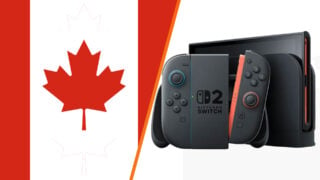Platinum receives Tencent investment, but claims it remains independent
Investment will help Bayonetta studio move into self-publishing, says CEO

PlatinumGames has received investment from Chinese tech giant Tencent, it announced on Tuesday.
In a written statement published on its website, Platinum CEO Kenichi Sato claimed that the investment would have “no effect” on the studio’s independence, but would help its move into self-publishing.
Platinum has made no secret of its ambition to move into self-publishing.
Studio head Atsushi Inaba told VGC in May 2019 that moving towards such a model would allow the company to own its own IP for the first time, thus more control over how it plans its games.
Platinum has two in-development original IPs, which will be owned entirely by the studio.
CEO Sato said on Tuesday: “We would like to announce we have received a capital investment from Tencent Holdings Limited as a basis for partnership.
“This partnership has no effect on the independence of our company, and we will continue operations under our current corporate structure.
“We hope to use this capital to strengthen our foundation as a business and expand from game development into exploring self-publishing. We also hope that this partnership can give us a wider global perspective, while still creating high quality games that stay true to our name.”

Despite creating countless critically-lauded IPs during its first ten years, Platinum is still reliant on partnerships with other companies.
The Bayonetta and Vanquish IPs are owned by Sega, while Nintendo has the rights to Wonderful 101 and Astral Chain.
In the same 2019 interview, Inaba told VGC that he was implementing methodology changes at Platinum, including new approaches in how it designs its games, in an attempt to build a “new foundation” for the company.
At the time Inaba claimed Bayonetta 3 would see a change in design process based on experience creating the first two games, and revealed that the firm was midway through creating an unannounced title which he claimed “has never been done before”.
Chinese tech giant Tencent’s globalisation strategy has been led by investments in and partnerships with video game companies.
As well as owning League of Legends maker Riot Games, it has a 40% stake in Epic Games, and holds shares in Activision Blizzard, Ubisoft and PUBG Corporation parent company Bluehole, among others.
It’s also currently helping Nintendo launch Switch in the Chinese market, and reportedly wants to develop console games using Nintendo characters in a bid to grow its business in the US and Europe.











